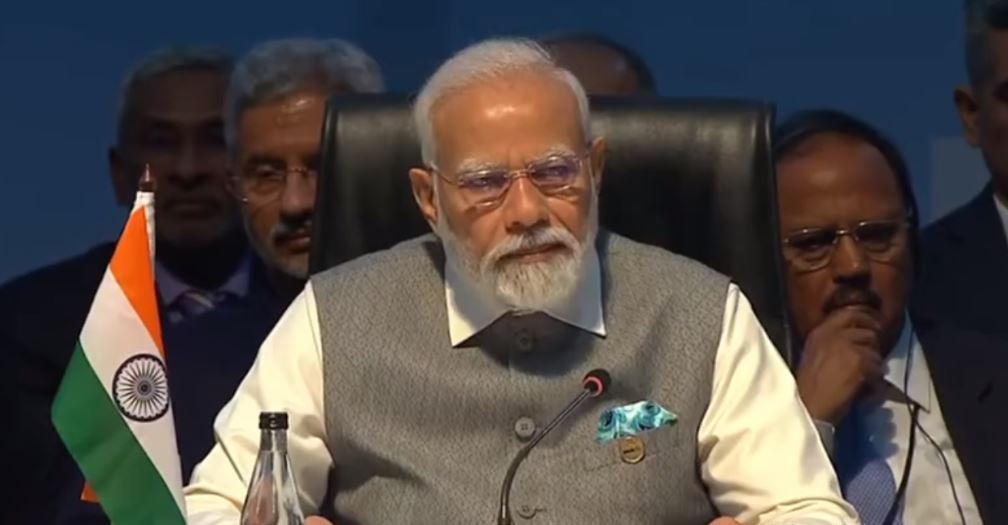New Delhi: With the BRICS deciding to admit six countries as its full members, Prime Minister Narendra Modi Thursday said the “expansion and modernisation” of the grouping is a message that all global institutions need to mould themselves according to the changing times.
At a media briefing along with the BRICS leaders in Johannesburg, Modi said inclusion of Argentina, Egypt, Ethiopia, Iran, Saudi Arabia, and the United Arab Emirates as the new members will give the grouping new momentum and energy.
The decision on expansion of the five-nation grouping was announced by President Cyril Ramaphosa at the end of the three-day BRICS summit in Johannesburg.
He said the new member nations will become part of BRICS (Brazil-Russia-India-China-South Africa) with effect from January 1, 2024.
In his media statement in presence of Ramaphosa, Chinese President Xi Jinping, Brazil’s Luiz Inacio Lula da Silva, Modi said India has always fully supported the expansion of the BRICS membership.
“India has been of the view that the addition of new members will further strengthen BRICS as an organisation, and give a new impetus to all our common endeavours,” he said.
The prime minister said the decision will further strengthen the faith of many countries in the multipolar world order.
“Other countries which have also expressed their desire to join BRICS, India will also contribute to building a consensus for joining them as partner countries,” he said.
“The expansion and modernization of BRICS is a message that all the institutions of the world should adapt to the circumstances of the changing times,” Modi said.
“This is such an initiative that can become an example for the reform of other global institutions established in the 20th century,” he added.
India and many other countries have been pressing for reform of the United Nations as well as global financial institutions like the International Monetary Fund (IMF) and the World Bank in reflection of the changing contours of geopolitics.
“I am happy that together our teams have agreed upon the guiding principles, standards, criteria, and procedures for expansion. And on the basis of these, we have agreed to welcome Argentina, Egypt, Iran, Saudi Arabia, Ethiopia and the UAE into BRICS,” Modi said.
“I congratulate the leaders and people of these countries. I am sure that together with these countries, we will give a new momentum, a new energy to our cooperation,” he said.
Modi said India has very deep and historical relations with all these countries.
“With the help of BRICS, new dimensions will definitely be added to our bilateral cooperation,” he said.
The South African president said an agreement was reached on the “guiding principles, standards, criteria and procedures of the BRICS expansion process, which has been under discussion for quite a while”.
“We have consensus on the first phase of this expansion process, and further phases will follow,” he said.
South Africa is holding the current presidency of BRICS.
The grouping took shape in September 2006 and it originally comprised Brazil, Russia, India, and China (BRIC). It was renamed as BRICS after South Africa was accepted as a full member in September 2010.
At present, the BRICS represents 41 per cent of the global population, 24 per cent of the global GDP, and 16 per cent of the global trade. The BRICS member nations have been the main engines of global economic growth over the years.
Chinese President Xi described the expansion of BRICS as a “new starting point” for cooperation in the grouping.
PTI
